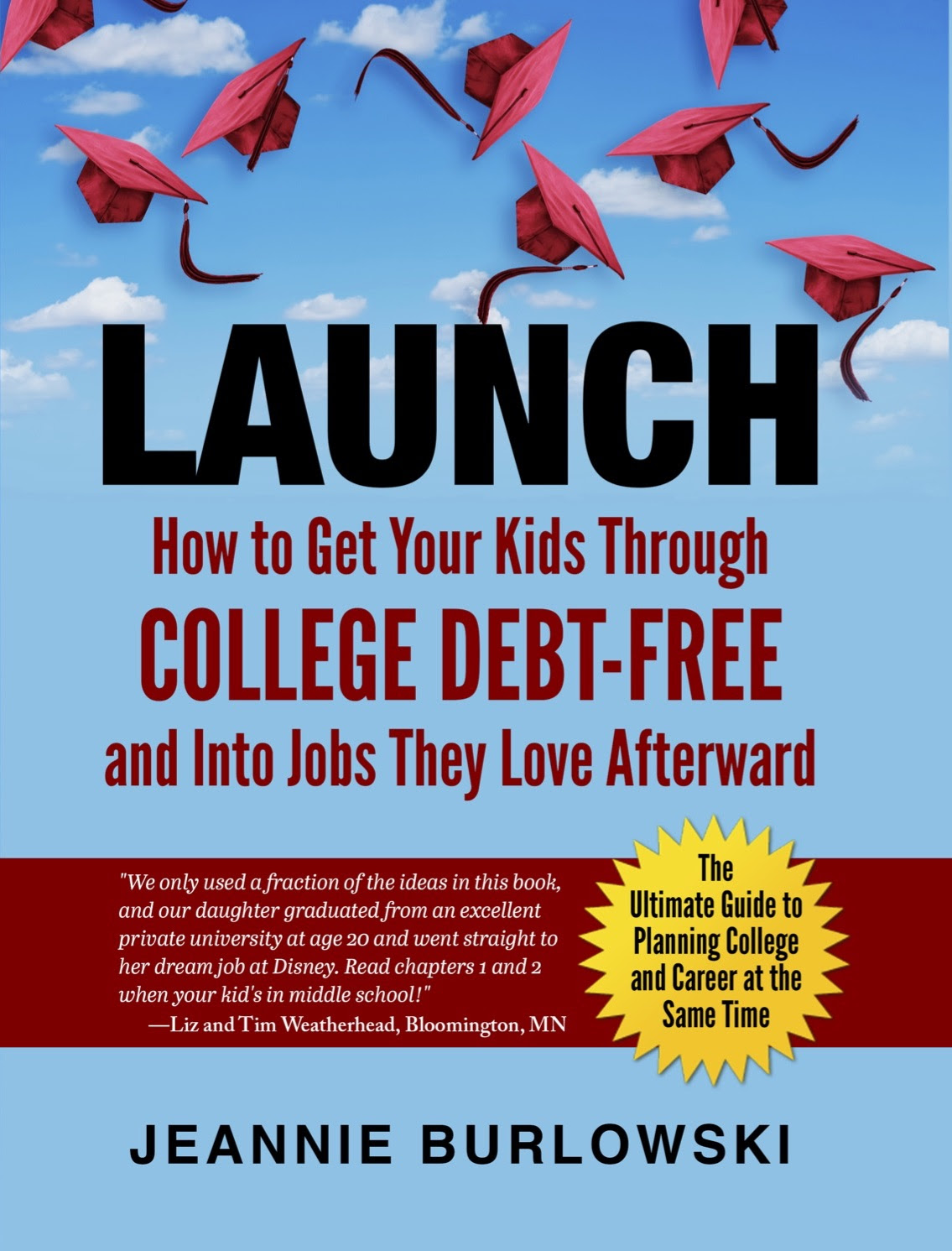URGENT—for early 2026. Do you have even one Parent PLUS loan? Might your parents have taken out a Parent PLUS loan for you? Skip this article and jump straight to the more urgent one here.
Parent, I urge you: DO NOT cosign a student loan for your child.
Today I’m featuring information from an article by nationally syndicated radio host and author Clark Howard. I consider this to be must-read info for every parent. After you read below, you can find articles by Clark Howard, listen to his radio show, view his videos, and sign up to receive his money-saving advice right in your email inbox at Clark.com.
Are you considering cosigning a loan for an adult child who needs a car, a student loan, or a credit card?
Here are 7 deeply concerning things you need to be aware of before you pick up that pen.

1. If you cosign a student loan, you may unwittingly strain future family relationships.
Nobody likes to think about this, but there’s an almost 4 in 10 chance that when you cosign a student loan, you will be the one who has to pay off the balance. A survey on creditcards.com found that of the cosigners they surveyed, 38 percent had to pay some or all of the loan balance or credit card bill because the primary borrower did not. 28 percent experienced a drop in their credit score because the person they chose to cosign for paid late or not at all, and 26 percent said the cosigning experience damaged their relationship with the person they cosigned for.
Are you ready for the relationship fallout you might experience down the road—if your son or daughter stops paying on the obligation? Remember, their debt will have your name written all over it until the day it’s paid in full.
2. When you share your child’s debt by cosigning on student loans or taking out Parent PLUS loans, you risk having your future Social Security checks garnished until the balances on those loans are paid in full.
This could leave you, the parent, in poverty during your retirement years. I am not kidding. Read the important article I (Jeannie) wrote on this subject, here.
3. Your untimely passing could throw a child you love into immediate default.
Private student loans commonly contain a clause that allows the lender to call the loan due in full if you as a co-signer die or declare bankruptcy.
The Consumer Financial Protection Bureau is recommending that people with private student loans try to get a release for their cosigner before something like this happens. They have a series of sample letters to help you get the job done.
4. You’ll have to be organized enough to keep track of every one of the payments.
A Bankrate article I read on Top 10 Reasons Not to Cosign put it this way:
“Think it’s hard enough to keep track of all of your own bills and payments? Well, if you cosign, you’ll also need to keep track of someone else’s bills and payments. This will mean checking each month (either online or by calling customer service) to make sure the payment has been made. You can’t blindly believe that all the payments will be made. Don’t wait until some debt collector calls you saying payments have not been made in six months. By then, your credit will have already been damaged.”
5. If you cosign a student loan, you’ll raise your debt-to-income ratio, potentially damaging your credit rating.
This can cause you untold headache in the event that you need to apply for a mortgage for yourself on down the line.
6. If your child leaves behind private student loan debt after perishing in a car accident or dying of cancer, lenders will come after you for the money.
This is the last thing you want to have happen while you are grieving tragic loss.
7. Cosigning student loans is so prevalent today that you may feel intense pressure from your child’s college to “just go ahead and do it.”
According to a report by the Consumer Financial Protection Bureau and the Department of Education, about 90 percent of all private student loans are co-signed by a parent. Sadly, one Citizens Financial Group survey revealed that 94% of parents with a child in college said they felt burdened due to their children’s college loans. In addition, 50 percent of parents surveyed did not have a plan to repay their child’s student loan debt.
Resist the urge. Cosigning is a hazard that should be avoided if at all possible. Having your child start college life at a low-cost community college near home is far preferable to you having to cosign a student loan.
You can thank Clark Howard for these insights by reading more of his material at Clark.com.
If you’re determined to cosign a student loan anyway, here’s what you can do to try to protect yourself:
You may be able to negotiate the terms of cosigning beforehand.
The Federal Trade Commission, on its cosigning FAQs page, suggests you try to get the following language into the loan contract: “The co-signer will be responsible only for the principal balance on this loan at the time of default.” This means you won’t be responsible for exorbitant penalties, late fees, or court costs if you’re sued over the debt because the borrower is not paying as agreed.
Dive full-speed ahead into paying the loan off, yourself, as fast as you can.
Taking a Dave Ramsey Financial Peace University class near you might help you with this. Remember, if you pay your daughter’s loan off early, she can still fulfill her obligation to you by making payments directly to you.
If you do ever cosign a student loan, make it a one-time-only thing, and treat the money as a gift.
If you treat the loan money as a one-time-only gift and you do actually get paid back, that will be a happy surprise.
Parents, I urge you to plan ahead and avoid student loans altogether.
For clear, step-by-step help getting your kids through college debt-free without applying for hundreds of scholarships, get your copy of my book:
Important—> It’s a reference book, so nobody reads the whole thing cover to cover. Pick out what you need to read in it using the fast-paced, 10-minute video instructions here.
You can see hundreds of reviews of this book on Amazon by going to:
Read just one chapter of LAUNCH every 1–3 months while your child’s in middle school and high school, and you’ll know every viable strategy for debt-free college at exactly the right time to implement it.
And if your child’s already well past middle school? That’s OK; you can run to catch up. But the process of getting your kids through college debt-free goes more smoothly the earlier you start—especially if you’re not planning to save up any money to pay for college.
Let's you and I walk together toward the goal of debt-free college for your kids.
We can accomplish this no matter your current income level—even if your kids never get a single scholarship.
Your first step is getting regularly scheduled, free helpful articles from me—right in your email inbox. Quick, sign up here.
Do you have very specific questions for me about debt-free college and career for your kids?
My TRIBE Members get the most direct access to me—while feeling good that the pennies per day they spend on the TRIBE help me bring debt-free college strategy to families who could never afford to pay for it. Join my TRIBE Membership waiting list here. (The parent testimonials you'll see there are so encouraging!)
Who is Jeannie Burlowski?
Jeannie is a full-time academic strategist, podcast host, and sought-after speaker for students ages 12–26, their parents, and the professionals who serve them. Her writing, speaking, and podcasting help parents set their kids up to graduate college debt-free, ready to jump directly into careers they excel at and love. Her work has been featured in publications such as The Huffington Post, USA Today, Parents Magazine, and US News & World Report, as well as on CBS News.
Jeannie also helps students apply to law, medical, business, and grad school at her website GetIntoMedSchool.com. You can follow her on Bluesky @jburlowski.bsky.social.
No part of this article was written using AI.
This article was updated on February 3rd, 2026.


